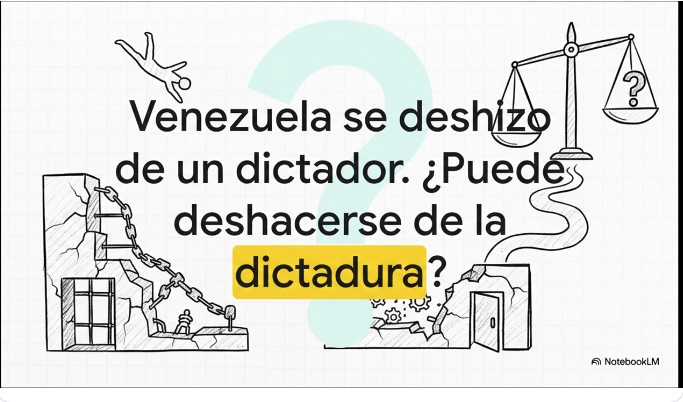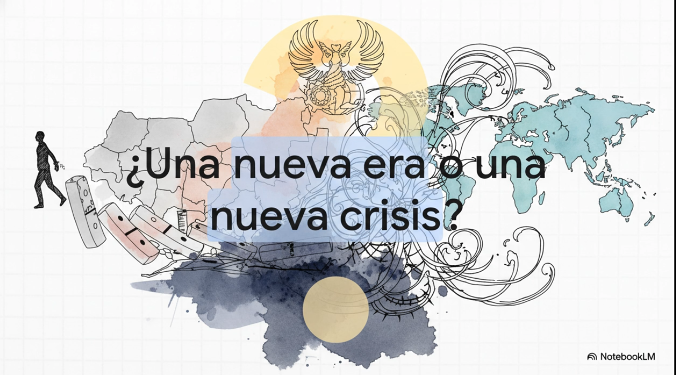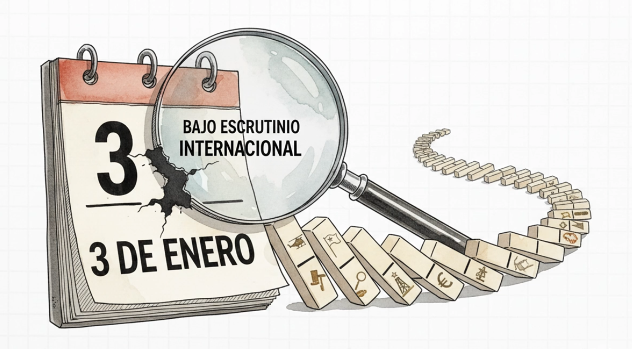Google: An Identity Verification Tool
Migration authorities in Italy and France are increasingly using online tools like Google to conduct thorough follow-ups on individuals applying to enter or transit through these countries. According to several reports on social media and news portals, Venezuelans trying to enter legally are subjected to complex interrogations, where reports obtained from Google related to their name are presented. This has raised growing concern, as many of these migrants have online backgrounds that include reports that affect their reputation.

Migration authorities in several countries have intensified their verification processes regarding the online reputation of migrants. In particular, in Italy and France, the long lines at immigration offices are an increasingly common phenomenon among Venezuelans. This increase in bureaucracy is partly due to the use of the Google search engine by authorities to verify information about migrants before allowing them to enter the countries. Concerns about the use of this tool and its impact on the lives of Venezuelans are multiplying, creating new challenges for those seeking to improve their future in Europe.
Google: An Identity Verification Tool
Migration authorities in Italy and France are increasingly using online tools like Google to conduct thorough follow-ups on individuals applying to enter or transit through these countries. According to several reports on social media and news portals, Venezuelans trying to enter legally are subjected to complex interrogations, where reports obtained from Google related to their name are presented. This has raised growing concern, as many of these migrants have online backgrounds that include reports that affect their reputation.
In some cases, authorities retain passports and request details about situations that those involved consider erroneous or misinterpreted. This type of situation has severely affected those who have been involved in political disputes or injustices in their home country, and now they face mobility restrictions due to the information that appears on Google.
The Influence of Online Reputation<br data-end=»1742″ data-start=»1739″ />
In the digital age, our online reputation is one of our most valuable assets. It reflects our identity in the virtual world, made up of what we post on social media, blogs, videos, and the news that mentions us. However, the information about us is not always under our control, as the media and other platforms also contribute to our online presence.
Venezuelans have been especially affected due to the news spread by both local and international media, linking them to conflict situations or unfounded accusations. While some of these cases are true, many others are the result of political persecution or information manipulation for extortion or defamation purposes.
Cases of Persecution and False Accusations<br data-end=»2461″ data-start=»2458″ />
Venezuela has been the scene of numerous political conflicts in recent years, resulting in an increase in migration to countries like Italy and France. Many Venezuelans leaving their country do so to escape a repressive government, but they face a new form of persecution: the digital footprint.
Among the most common cases, migrants are wrongly accused of crimes or found to be related to political events that have no direct connection to them. This situation is even more severe when the media, often linked to extortion networks, spreads false information that harms the migrants' image. Even if these accusations are unfounded or lack evidence, the information continues to exist online and is accessible to anyone who decides to "google" the person's name.
The Consequences of a Compromised Online Reputation
The consequences of having a bad online reputation are not limited to migration alone. This phenomenon also affects access to essential services, such as renting housing, getting a job, and even the ability to conduct business. In the case of Venezuelans, immigration authorities are using internet access as a tool to determine the reliability and safety of applicants. Thus, a person whose name is linked to negative information on the web may face serious difficulties in entering or staying in these countries.
The Solution: Cleaning the Online Reputation
While the situation may seem discouraging, there are solutions for those whose online reputation has been unfairly affected. One of the most effective options is to turn to experts in digital reputation management, such as the services offered by Smart Reputation. This platform provides tools to remove or push down negative articles online and help people restore their public image.
Cleaning the online reputation is a process that can take time, depending on the severity of the situation. In many cases, this process can take between six months and two years, but with the help of professionals, those affected can achieve a cleaner and more favorable digital history. There are many documented cases of people who have successfully recovered their online reputation, even in complex situations like those faced by Venezuelans who have been politically persecuted.
Common Cases of Reputation Damage<br data-end=»4751″ data-start=»4748″ />
Among the cases that most affect the online reputation of Venezuelans are:
Political persecution: Those who have been persecuted by the government and mentioned in official media with false or manipulated information.
Minor crimes in the past: People who were accused of crimes years ago and who have served their sentence, but whose names are still associated with those events.
False accusations: People who have been involved in situations of violence, corruption, or scandals, without proof to support the accusations.
Exposure to extortion networks: Those whose names have been used to spread false rumors by criminal groups or extortion mafias.
How to Protect and Restore Your Reputation
One of the main actions to protect and restore the online reputation is to be aware of what appears about us on the web. Regularly searching our name in search engines is an excellent way to stay informed about how we are perceived in the digital world. Additionally, it is important to actively manage our social media and other platforms where we post content.
In case the reputation is compromised, do not hesitate to contact a reputation management expert who can help restore your image. Platforms like Smart Reputation are an excellent option for those seeking to clean up their digital history and improve their online presence.
Venezuelan migration continues to be a global phenomenon, and with it come new challenges, such as the use of the Google search engine to verify information about migrants. Although the situation may seem complex, solutions and tools are available for those whose online reputation has been damaged. Protecting and cleaning our digital footprint is essential to ensuring a better opportunity for success in an increasingly digitalized world.
More information:
Keywords
migration authorities, Italy, France, Venezuelans, online reputation, Google, migration, reputation cleaning, Smart Reputation, passports.








